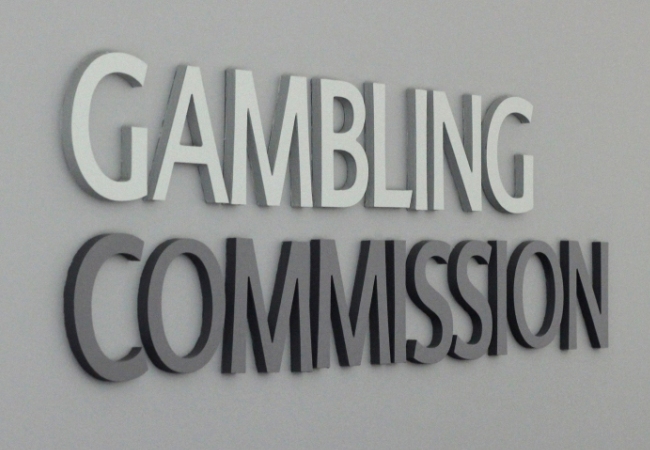The Gambling Commission has set out its new VIP controls for gambling operators.
Today, the Gambling Commission outlined new rules for VIP customers which will require licensed operators to carry out enhanced affordability and responsible gambling checks.
The UK regulator has warned that the loyalty schemes may be banned if operators fail to comply with the new measures.
The new VIP measures
Under the Commission’s new guidance, operators will be required to establish that a customer’s spending is “affordable and sustainable” and perform a source of funds check.
A customer’s past gambling behaviours must also be assessed for evidence of gambling-related harm before they can be considered for a VIP scheme.
This essentially means that gambling operators must ensure they possess up to date evidence of a customer’s identity, job, and an indication of where the money funding their gambling is coming from.
Operators will be required to carry these checks out, along with gambling-related harm assessments, on a regular basis once a customer joins a VIP scheme. The Commission warned that if gambling companies do not follow the new rules, the regulator may ban VIP schemes altogether.
The regulatory body also said that the new guidance will require operators to appoint a senior executive who holds a personal management licence (PMLs) to oversee their respective schemes. This means that an individual person in each company will be accountable for overseeing compliance with the new rules.
Neil McArthur, Gambling Commission chief executive, said: “We have introduced these new rules to stamp out malpractice in the management of ‘VIP’ customers and to make gambling safer. Our enforcement work has identified too many cases of misconduct in the management of VIP schemes and this is the last chance for operators to show they can operate such schemes appropriately.
McArthur added: “We understand that the number of customers signed up to ‘VIP’ schemes has already reduced by 70% since we challenged the industry to get its house in order, last year. Whilst that is a sign of the positive impact our innovative approach to collaborative working can have, these new rules are designed to ensure progress continues to be made to protect vulnerable customers.
“Operators can be in no doubt about our expectations. If significant improvements are not made, we will have no choice but to take further action and ban such schemes. These new rules are part of the Commission’s comprehensive programme of tougher enforcement and compliance activity which has also seen the introduction strengthened protections around online age and ID verification, improved customer interaction practices, and the banning of gambling on credit cards.”
The majority of the new rules are the product of a working group led by GVC Holdings that was established in January. Several of those rules have already been adopted by the UK gambling industry body, the Betting and Gaming Council (BGC), which includes limiting VIP schemes to customers aged 25 and above.
These new rules will come into effect from 31 October and follow a consultation on high-value customers (HVCs) which aimed to increase the controls for VIP schemes.
Key points from VIP consultation
Based on the consultation on high-value schemes, the Commission said: “We note the concern that source of funds, ordinarily prompted by anti-money laundering (AML) concerns, may currently be conducted at a higher threshold than is typically required to qualify HVC incentives. However, we consider these checks justifiable given the unique arrangements made to incentivise HVCs to spend at significantly higher levels than the wider customer base.”
The Commission noted that HVCs present a heightened risk due to their high levels of engagement by frequency and spend.
The Regulator stated that any source of funds check must be supported with accompanying evidence requested from and provided by individual customers instead of being based on open-source data such as property values.
The new rules will require a greater level of oversight of VIP schemes and operators must maintain a “full audit trail and record of decisions” which will include notable events with customers at all stages of the VIP relationship.
One respondent in the consultation predicted that there will be a large revenue loss due to these audits, but the Commission said a majority approved the rules.
In response to the concern over revenue loss, the Commission said: “much of what we are proposing will not represent a significant additional burden to compliant licensees as it draws together pre-existing requirements and how they should be applied to HVCs”.
VIP managers will also need to rotate which customers they manage to help ensure “objectivity in decision making is maintained.”
The commission said: “We note the concern that in some instances, customers could be more willing to share information with staff they are familiar with. However, a lack of objectivity by HVC staff managing designated customer accounts has been a recurring theme of our casework and is a risk that needs to be addressed.”
Other stances on VIP schemes
VIP schemes have come under incredible levels of scrutiny in the media in recent months after the Commission has issued several penalties to operators who have failed in their responsibilities to some VIP players.
In June, the All-Party Parliamentary Group on Gambling-Related Harm called for VIP schemes to be banned entirely.
Prior to this, the House of Lords’ gambling select committee report into regulatory changes revealed that based on data from nine UK operators, only 2% of customers were considered VIPs, but these players accounted for 83% of deposits.
Other developments on the responsible gambling front
The Commission’s new measures come after the BGC announced its members would adhere to a new code of conduct for the design of online games which will include implementing limits on slot spin speeds and bans on some features.
The new code of conduct will limit the speed of online slot games to 2.5 seconds per spin and ban turbo play features, which allow users to speed up games, and multi-slot play which allows a player to place multiple stakes on different games at the same time. These features were deemed to encourage intensive play.
The features of the code of conduct were the product of the Gambling Commission working group on game design led by Scientific Games and Playtech, which published suggestions for the industry code in April. However, at the time this was published, the Gambling Commission said the working group’s suggestions did not go far enough.






